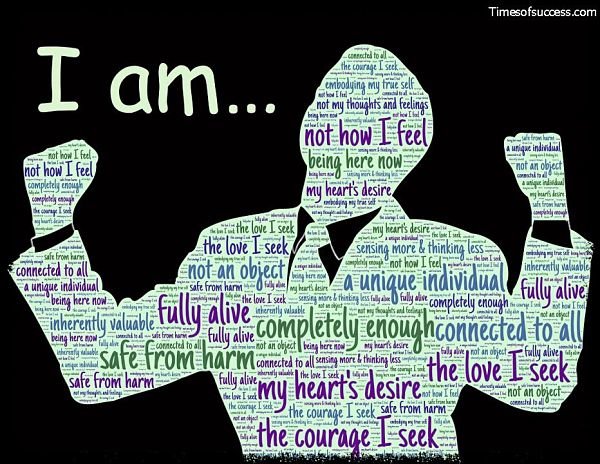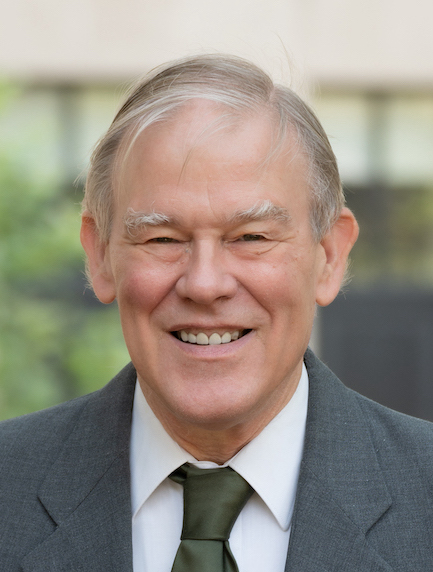An earlier article reviewed an analysis of J. Gresham Machen’s Christianity and Liberalism by Pierce Taylor Hibbs of Westminster Theological Seminary, relating it to the therapeutic culture of our day. Hibbs found the “new liberalism” of our day essentially accepts early twentieth century liberalism’s rejection of the gospel of salvation in favor of a gospel of individual freedom and adds to it today’s therapeutic culture. He went on to explain how contemporary liberalism has developed the “psychological self,” that lies at the core of its gospel.
The Anthropology of the Self-Defined Self
The focus on the self raises the question of how people now understand the nature of the human self. Thus, the debate is about anthropology, which bears particularly on “sexual identity politics.” Answers about anthropology “are assumed before the outset of dialog.” The “therapeutic” part of the therapeutic self means that “the self is defined by its own wants and satisfactions coordinated by cost/benefit calculation.” People should be “internally satisfied through their external relationships. Relationships are the social means to therapeutic ends.” It could be added that this is seen particularly in unilateral (or no-fault) divorce, which is now everywhere possible. It has been noted that a marriage can be ended more easily than a plumbing contract.
This leads to an isolated life. Quoting Robert Bellah, he said that “the self must be maintained as the intuitive center of the wants and impulses that define right action.” This in turn results in an “overwhelming amount of work” for the self to do. Action is assessed according to what is satisfying based on one’s past subjective history. It is noteworthy that Americans today are more depressed than at any time in the past, he said.
Hibbs then quoted Philip Rieff. “The therapeutic will be a man of leisure, released by technology from the regnal discipline of work, so as to secure his sense of wellbeing in highly refined, alloplastic ways.” This means that “people will be very selective in which external authorities they are willing to have shape them.” This is related to contemporary tribalism, in which people associate with a particular faction or factions and “demonize” opponents. “Relationships are the means to the end of internal satisfaction.”
The “psychological” part of the self “understands itself primarily by its consciously and inwardly chosen labels.” One is defined primarily by “the inward quest for personal, psychological happiness.” The key word is “inward …where the commitment is first and foremost to the self.” Outward institutions should serve the self.
Many contemporary maxims arise from the psychological self. These include “trust yourself,” “you do you,” “forgive yourself,” and “follow your heart.” Hibbs said his mother offered the last to him as advice, but after reading Jer. 17:9, (“the heart is deceitful above all things, and desperately wicked, who can know it?”), he corrected her. But in addition to being wildly unbiblical, the psychological self never has final authority in our lives. “We are indelibly marked from our birth with social interactions that color and shape our experience.” Yet it remains a powerful cultural myth that “we not only can, but must, make up our deepest beliefs in the isolation of our private selves.”
Self-Definition against Truth and Reality
Thus, the psychological self is made up of 1) the belief that relationships exist to be used for personal satisfaction, and 2) that the only final authority is “internal and subjective.” He referred to the podcast “The Witch Trials of J.K. Rowling.” These resulted in the wake of the controversy surrounding Rowlings’ tweets attacking transgenderism. After extensive research, she found it to be a threat to feminism and the safety of women in female only spaces (such as rest rooms and locker rooms). She tweeted that a wide range of social liberalism (such sexual activity with any consenting adult, dressing as the opposite sex, or assuming a name characteristic of the opposite sex) is acceptable, but not the attempt to deny any legal or social status to biological sex.
This resulted in fierce condemnation and death threats. Hibbs remarked that if Rowling had made her statement in the age of Machen, no one would have blinked (at least to the part about the reality of sex), but in “the age of the therapeutic, psychological self,” such as statement is dangerous. In the encounter on the podcast, Rowling held unwaveringly to the criterion of biological sex as defining a woman. That unalterable commitment infuriated the other side. Rowling had invoked an external authority “to determine human identity.” This was seen by her opponents as “an assault on their authentic individuality.” Hibbs observed that when Rowling “was going to a meeting with other feminists, the chant [by transgender activists] was ‘no debate.’” Objectivity amounts to tyranny. “On the other hand, objectivity of some kind is unavoidable.” He said that “the history of humanity is grounded on the differences between male and female.” Rowling said her research had shown much sexual violence has been committed by males. But this would not be intelligible if sex is unreal.
Hibbs said that he found “fascinating” the “position of the podcast’s host, Megan Phelps-Roper.” She had been a member of Westboro Baptist Church, pastored by Fred Phelps, whose picketing in fierce condemnation of homosexuality attracted national attention. But she has deconstructed her faith. Rowling asked her in the final podcast what brought about the change. Phelps-Roper said that she had always questioned her assumptions, but never questioned that the Bible was the infallible Word of God, or her church’s interpretation of it. Once “that objective authority was left behind, all that remained was the subjective self, with its unassailable claims to be whatever it wants to be.”
Hibbs believes that “the therapeutic psychological self won the day in that podcast.” He felt that Rowling seemed “dated and stale.” Dramatically, “she went from being a champion of the lesbian and gay community in the early 2000s, to being a witch under trial by the transgender movement in 2019.” This change, Hibbs said, was the result of the new liberalism. The old liberalism sought freedom from traditional authorities, the new liberalism seeks freedom even from reason and physical reality in the name of happiness.
Hibbs concluded that “the moment we give up the authority and infallibility of God’s Word, is the moment we give up ourselves to the reign of the therapeutic and psychological self.” This self is “brittle,” and therefore “actually quite scared.” It is therefore dangerous. Because Christians are in a negative world, we must approach it cautiously. The new liberalism contains within itself all of the old liberalism that Machen was fighting, plus the therapeutic world of the psychological self. Hibbs added that although people sometimes speak of the contemporary world as being “disenchanted,” in fact it is “differently enchanted.” It is now haunted by individual wants and desires.
Apologetic/Evangelistic Response to the New Liberalism
As an apologetic response to the new liberalism, Hibbs proposes “the insider/outsider dynamic.” Because the psychological self is fragile, Christians can invite people into a relationship with a God who fully knows and will fully love them. “The Trinity is the ultimate insider community,” Hibbs said. The members of the Trinity are all “fully known and fully loved.” All creatures, and certainly all human beings, are made to be insiders, “fully known and fully loved.” Creatures are outsiders in the sense of being outside the Trinity, but after the fall, human beings “became sinful outsiders.” This means that people do things that make them “not want to be known,” and feel unlovable. Throughout Scripture, God takes outsiders, and “and he makes them insiders.”
To implement an insider/outsider apologetic, “identify what outsiders are chasing.” He said that in contemporary culture, the options are paganism (worship of self), and idolatry (worship of a creature). Secondly, “connect what they chase to the deepest human longings (being fully known and fully loved by God).” Thirdly, “show how the Gospel subverts and fulfills what they chase.” People “chase idols for a certain feeling. They chase a certain relationship for what it does inside them.” The job of the apologist/evangelist is to show that what is truly wanted is only available in relationship with God.
A problem with encountering unbelievers, Hibbs said, is a condition of “semantic haze” (what Machen called “a condition of low visibility”). Religious words may be used, but their meaning is left vague or undefined. Such a statement as “Jesus is the Son of God” may only mean that “Jesus is the supreme moral example.” In interacting with unbelievers, Christians should “ask them what they mean.” Another common example is the use of the word “love.” It is likely that truth is not thought of as part of love, as in Christian doctrine it is. Instead, such ideas as “acceptance,” or “self-affirmation” are likely to be mentioned.
Hibbs believes that the Trinity undergirds all language. Thus, “you can’t say anything meaningful without having some relationship to the character and nature of God.” Unbelievers of course will not believe this, but it is helpful for Christians in endeavoring to understand the meaning of words and advancing the Gospel in the contemporary world.






Comment by MikeB on June 23, 2024 at 1:42 pm
God and his word are the only surety in this world, all else may change or fail.